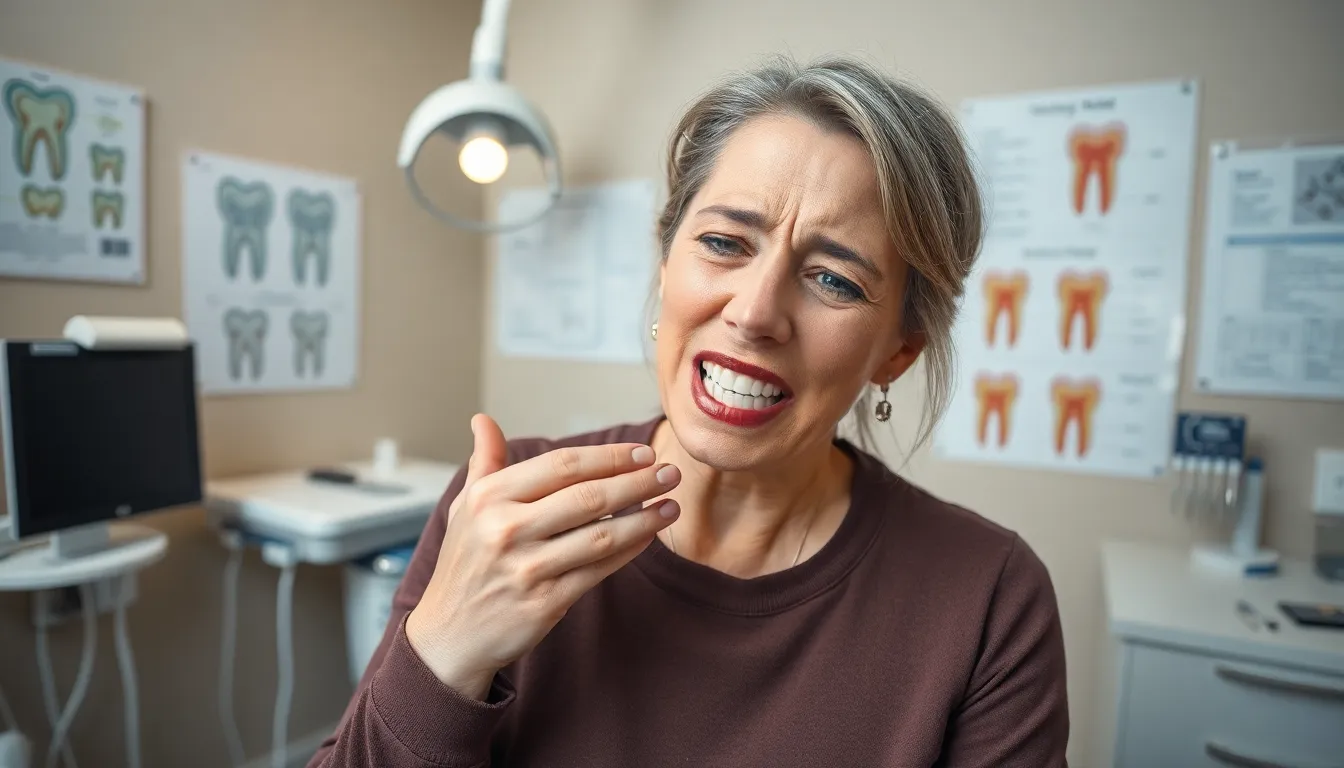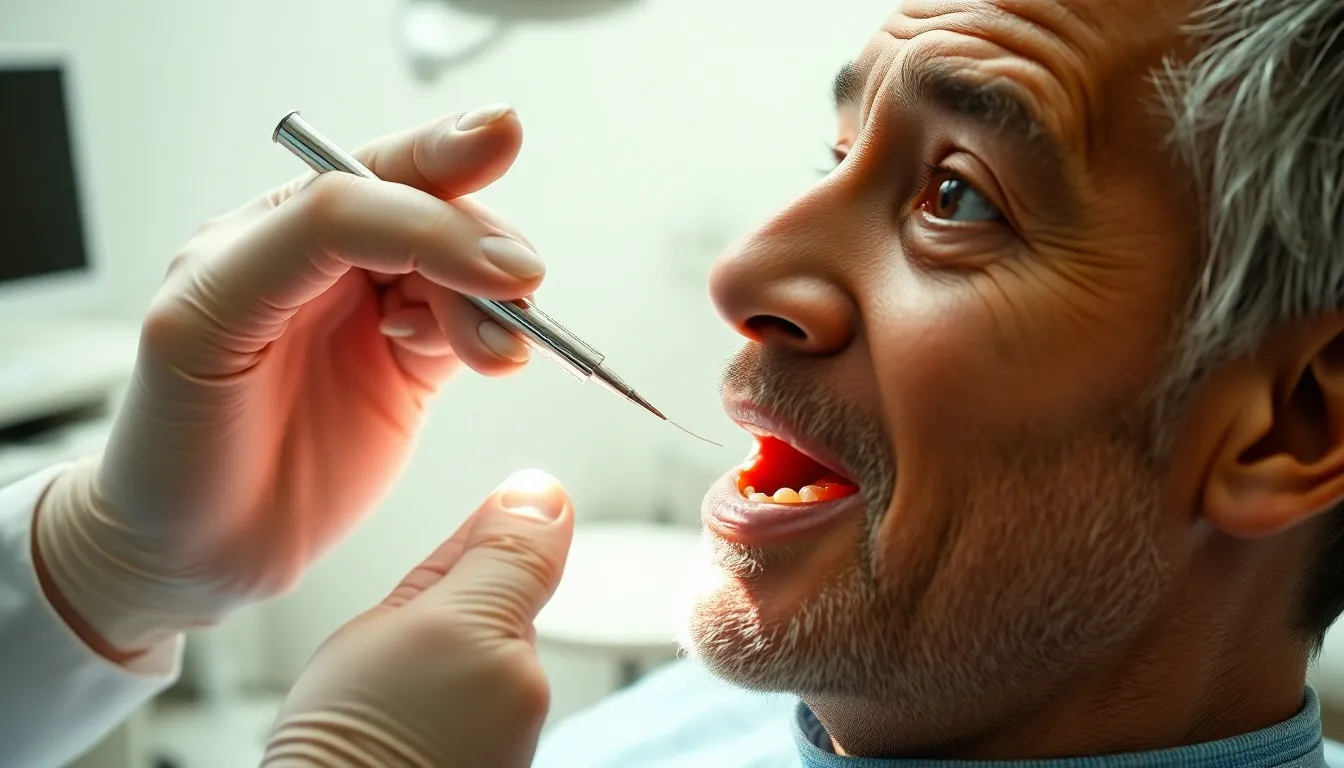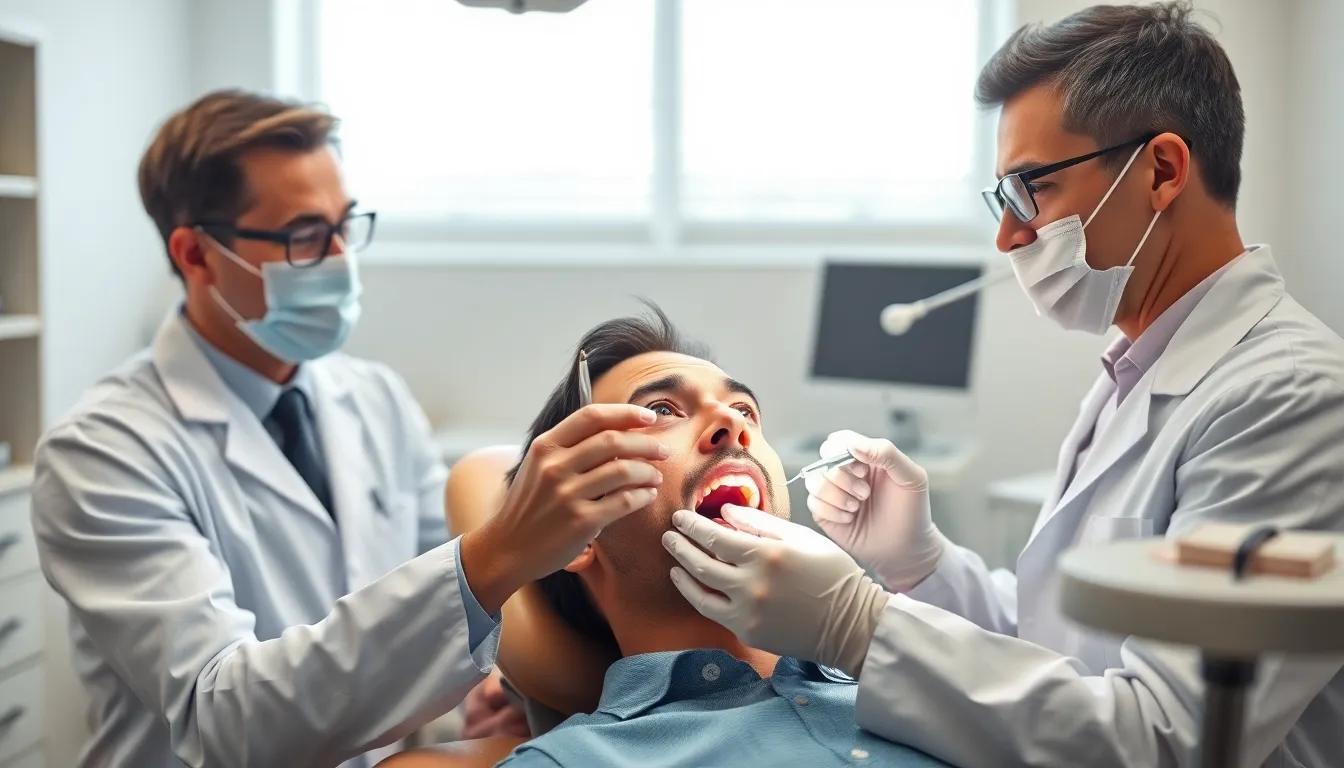Can rotten teeth make you ill? The answer is a resounding yes, and the consequences might be more serious than you think. That nagging toothache isn’t just an inconvenience—it could be a warning sign of something far more dangerous.
When tooth decay progresses beyond simple cavities, bacteria from infected teeth can enter your bloodstream and potentially affect vital organs. This connection between oral health and overall wellness isn’t just dental industry talk—it’s backed by scientific research linking poor dental health to heart disease, diabetes complications, and respiratory infections. Your mouth truly serves as a window to your body’s health, making those decaying teeth a potential threat that extends well beyond your smile.
Understanding Dental Decay and Tooth Rot
Dental decay represents a progressive breakdown of tooth structure caused by acid-producing bacteria. This destructive process can transform healthy teeth into painful, infected structures that potentially threaten your overall health.
How Teeth Become Decayed and Rotten
Tooth decay begins with plaque formation on your teeth. Bacteria in your mouth feed on sugars and starches from food particles, producing acids that attack tooth enamel. These acids dissolve the minerals in your tooth enamel through a process called demineralization. Left unchecked, this acid erosion creates tiny openings in the enamel, forming the initial stage of cavity development.
Several factors increase your risk of developing tooth decay. Frequent consumption of sugary drinks, poor oral hygiene practices, and inadequate fluoride exposure all contribute to faster enamel breakdown. Dry mouth conditions reduce saliva flow, eliminating its natural protective effect against acids. Certain medical conditions like acid reflux or eating disorders expose teeth to additional acid damage, accelerating decay.
Dr. Todd B. Harris notes, “I’ve treated many patients who were surprised to learn their soda habit was literally dissolving their teeth. One patient, Sarah, drank 4-5 cans daily for years and developed extensive decay across multiple teeth even though regular brushing.”
The Progression of Dental Decay
Dental decay follows a predictable pattern through tooth layers. Initially, decay attacks the hard outer enamel, creating small white spots that indicate demineralization. These spots may remain unnoticed without professional examination. Decay then penetrates the dentin layer, causing increased sensitivity and discomfort when consuming hot, cold, or sweet items.
As infection reaches the pulp chamber containing nerves and blood vessels, intense pain typically develops. Bacteria multiply within this protected space, forming an abscess at the tooth root. Abscesses contain pockets of infection that can spread to surrounding tissues and enter your bloodstream.
Advanced decay presents visible signs including dark brown or black spots, visible holes or pits, persistent bad breath, and pus around the gumline. Teeth in this condition represent more than cosmetic concerns—they become active infection sites within your body that require immediate professional attention.
The Systemic Health Risks of Rotten Teeth

Rotten teeth pose serious threats beyond your mouth, affecting multiple body systems through widespread infection and inflammation. When tooth decay progresses untreated, bacteria spread beyond the tooth to surrounding tissues and enter your bloodstream, triggering systemic health problems including cardiovascular disease, diabetes complications, respiratory infections, and adverse pregnancy outcomes.
Bacterial Infections That Spread From Teeth
Tooth decay frequently results in abscesses—pockets of pus caused by bacterial infections in the tooth pulp. These infections can travel through lymphatic channels or blood circulation to other body parts when left untreated. Spreading dental infections potentially cause life-threatening complications such as sepsis, a dangerous whole-body inflammatory response. Bacteria from decayed teeth also worsen periodontitis (gum disease), leading to gum tissue destruction, bone deterioration, and eventual tooth loss. One of my patients, Sarah, ignored a severely decayed molar for months until she developed facial swelling and fever requiring hospitalization for a systemic infection that originated from that single tooth.
Toxins Released Into the Bloodstream
Decayed teeth and inflamed gums create entry points for oral bacteria to access your circulatory system. Bacterial toxins and inflammatory substances travel through blood vessels to distant organs once they enter your bloodstream. Oral bacteria reaching blood vessels contribute to heart disease development by promoting arterial inflammation and plaque formation inside vessel walls. Diabetes management becomes more challenging as oral infections raise blood sugar levels significantly. Respiratory conditions develop or worsen when bacteria from infected mouths are inhaled directly into the lungs. Research shows people with poor oral health face a 20% higher risk of developing cardiovascular disease compared to those with healthy mouths, demonstrating the critical connection between dental health and overall wellbeing.
Common Illnesses Linked to Poor Dental Health

Poor dental health extends far beyond cosmetic concerns, creating pathways for bacteria to enter your bloodstream and affect your overall wellbeing. Decayed teeth harbor harmful bacteria that can trigger inflammation and infection throughout your body, contributing to several serious health conditions.
Cardiovascular Disease Connections
Oral bacteria from decayed teeth often travel through your bloodstream, causing inflammation that directly impacts your heart and blood vessels. These bacteria contribute to atherosclerosis, a condition where plaque builds up in your arteries, restricting blood flow and increasing your risk of heart attacks by 19%. Endocarditis, an infection of the heart’s inner lining, frequently stems from oral bacteria that attach to damaged areas of your heart. Research published in the Journal of Periodontology found that individuals with untreated tooth decay face a 24% higher risk of ischemic stroke compared to those with healthy teeth.
Dr. Harris notes, “I’ve treated many patients who were surprised to learn their heart conditions were exacerbated by their dental infections. One patient with advanced decay experienced important improvements in their cardiovascular markers after comprehensive dental treatment.”
Respiratory Problems and Pneumonia
Bacteria from infected teeth easily travel from your mouth to your lungs when you breathe, leading to serious respiratory complications. Aspiration pneumonia occurs when these oral pathogens are inhaled into your lungs, with elderly patients showing a 40% higher risk when they have untreated dental decay. Your immune system becomes compromised as it constantly battles oral infections, making you more susceptible to bronchitis and recurring respiratory infections.
A patient in her 70s came to our clinic with persistent pneumonia that antibiotics couldn’t resolve. After treating her severe tooth decay and removing several infected teeth, her respiratory symptoms improved dramatically within weeks.
Diabetes Complications
Tooth decay creates a dangerous bidirectional relationship with diabetes, each condition worsening the other. Infections from rotten teeth cause inflammation that interferes with insulin function, making blood sugar levels harder to control and increasing A1C levels by an average of 0.8%. Diabetes simultaneously reduces your body’s ability to fight bacterial infections, accelerating the progression of tooth decay and creating a vicious cycle. Studies show diabetic patients with poor oral health require hospitalization 54% more frequently than those maintaining good dental hygiene.
Warning Signs That Rotten Teeth Are Affecting Your Health

Rotten teeth send clear distress signals before developing into serious health problems. Your body communicates through various symptoms that dental decay has progressed beyond a simple cosmetic issue.
Symptoms You Shouldn’t Ignore
Pain and sensitivity serve as the first indicators of advancing tooth decay. When chewing becomes painful or hot and cold foods trigger discomfort, these sensations signal that decay has reached the sensitive inner layers of your teeth. Dark spots or visible holes on tooth surfaces represent clear evidence of active decay requiring immediate attention. Gum inflammation presents another crucial warning sign—swollen, bleeding gums during routine brushing indicate gingivitis, the early stage of gum disease that can progress rapidly without intervention.
Persistent tooth pain or throbbing sensations that don’t subside indicate infection reaching the tooth’s nerve center. Foul breath or an unpleasant taste that remains even though brushing stems from bacterial proliferation in decayed areas. Difficulty eating or speaking suggests advanced decay affecting tooth functionality. Gums pulling away from teeth create pockets where bacteria thrive, accelerating both decay and infection spread. General malaise or unexplained fatigue might connect to oral infections releasing bacteria into your bloodstream.
Dr. Harris often shares the story of a patient who ignored recurring tooth sensitivity for months, assuming it was normal. “By the time she came in, the infection had spread to her sinuses, causing severe headaches and fever. What started as a treatable cavity had become a medical emergency requiring hospitalization.”
When to Seek Emergency Care
Severe, unrelenting toothache that doesn’t respond to over-the-counter pain medications demands immediate professional attention. Facial or neck swelling indicates infection spreading beyond the oral cavity into surrounding tissues. Difficulty swallowing or breathing presents life-threatening symptoms requiring emergency care, as infection may be compressing airways. High fever accompanying oral symptoms signals your body’s systemic response to spreading infection. Abscess formation or visible pus discharge around teeth or gums demonstrates active infection requiring urgent treatment.
Each of these emergency symptoms potentially indicates that oral bacteria have breached local defenses and entered your bloodstream or surrounding tissues. The danger extends far beyond tooth loss—untreated dental infections can spread to vital organs, including your heart and brain. Medical records show patients hospitalized with serious complications that originated from neglected dental problems, highlighting the critical connection between oral health and overall wellbeing.
Prevention and Treatment Options

Addressing rotten teeth requires both proactive prevention strategies and appropriate treatment interventions. Effective management combines professional dental care with consistent home oral hygiene practices to halt decay progression and prevent systemic health complications.
Dental Procedures for Decayed Teeth
Dental professionals offer several treatment options for decayed teeth based on the severity of the condition. Fillings effectively restore teeth with early to moderate decay by removing the damaged portion and replacing it with composite resin or amalgam material. Root canal therapy becomes necessary when infection reaches the tooth’s pulp, involving the removal of infected tissue followed by sealing and protecting the tooth with a crown. Severely damaged teeth beyond saving often require extraction to prevent infection spread, with subsequent replacement options including implants, bridges, or dentures to restore function and appearance. Dental abscesses typically need draining along with antibiotic treatment to eliminate the infection. Periodontal therapy addresses associated gum disease through deep cleaning procedures like scaling and root planing to remove bacteria below the gumline.
One of my patients, Sarah, avoided dental visits for years due to anxiety until unbearable pain forced her to come in. What began as a small cavity had progressed to a severe infection requiring multiple treatments. After successful intervention, she remarked, “I never realized my toothache could have led to something so serious. Now I understand why regular check-ups are essential.”
Creating a Dental Health Routine
Establishing a consistent dental health routine forms the foundation of decay prevention. Brush your teeth twice daily for two minutes using fluoride toothpaste and a soft-bristled toothbrush to remove plaque and food particles. Daily flossing reaches between teeth where brushing cannot, removing bacterial buildup that contributes to decay and gum disease. Antiseptic mouthwash provides additional protection against bacteria when used as recommended by your dentist. Dietary choices significantly impact dental health, so limiting sugary foods and beverages reduces acid production that erodes tooth enamel. Regular dental check-ups every six months allow for professional cleaning and early detection of potential issues before they develop into serious problems. Tobacco products dramatically increase decay risk, gum disease, and oral cancer, making cessation an important component of oral health maintenance.
As a practicing dentist for over 20 years, I’ve observed that patients who maintain consistent preventive care routines rarely develop severe dental complications. The minimal time investment in daily oral hygiene yields tremendous benefits not just for dental health but for overall physical wellbeing. Most systemic issues related to dental decay can be completely avoided through simple preventive measures and prompt treatment of minor problems.
The Importance of Regular Dental Check-ups

Regular dental check-ups serve as the frontline defense against tooth decay and related health complications. These routine visits enable dentists to detect early signs of decay before they develop into serious infections that can affect your overall health.
Early Intervention Benefits
Early detection through regular dental visits prevents minor decay from progressing into severe infections or tooth loss. Dentists can identify and treat small cavities before they reach the deeper structures of your teeth, saving you from painful abscesses and extensive treatments. Professional cleanings remove plaque and tartar that regular brushing can’t eliminate, reducing your risk of developing gum disease that’s linked to heart problems and diabetes complications. Many patients discover issues during routine appointments that they weren’t even aware of yet.
Dr. Todd B. Harris notes, “I’ve seen countless cases where a simple check-up revealed early decay that we treated with a small filling, saving the patient from eventually needing a root canal or extraction. Early intervention is always less invasive, less painful, and more cost-effective for my patients.”
Affordable Dental Care Options
Dental care accessibility isn’t limited to those with comprehensive insurance coverage. Community health centers offer sliding-scale fees based on your income level, making preventive care available regardless of financial circumstances. Dental schools provide supervised care by students at significantly reduced rates, offering quality treatments while helping future dentists gain experience. Discount dental plans work differently than insurance by providing reduced rates for members at participating practices.
One patient shared, “I avoided check-ups for years due to cost concerns until I found a community dental clinic. They discovered several cavities that could have become serious infections. Their affordable payment plan allowed me to get treatment before the decay affected my overall health.”
Public health initiatives in many areas now focus on preventive dental care programs, recognizing that investing in prevention reduces the burden of treating serious health complications later. These programs particularly target vulnerable populations who traditionally have limited access to dental services.
Regular six-month check-ups significantly reduce your risk of developing the systemic diseases linked to poor oral health, including cardiovascular problems, diabetes complications, and respiratory conditions. These appointments represent a critical investment in both your oral and overall health, preventing the spread of bacteria from rotten teeth into your bloodstream where they can cause widespread damage.
Conclusion
Your dental health is inseparably linked to your overall wellbeing. Rotten teeth aren’t just a cosmetic issue or a source of pain—they’re potential gateways for harmful bacteria to enter your bloodstream and affect critical organs and systems.
Don’t wait until you’re facing severe symptoms like facial swelling or high fever. Take proactive steps now by maintaining a consistent oral hygiene routine brushing twice daily flossing regularly and limiting sugar consumption.
Remember that affordable dental care options exist and regular six-month check-ups are an investment in your long-term health. By prioritizing your dental health today you’re protecting yourself from potentially serious systemic illnesses tomorrow.
Frequently Asked Questions
How can rotten teeth affect my overall health?
Rotten teeth can impact your entire body, not just your mouth. Bacteria from infected teeth can enter your bloodstream and affect vital organs, potentially contributing to heart disease, diabetes complications, and respiratory infections. These oral bacteria trigger inflammation throughout the body and can lead to serious systemic infections. The connection between oral health and overall wellness is significant, making dental care an essential component of maintaining good health.
What are the early signs of tooth decay?
Early signs of tooth decay include increased tooth sensitivity to hot, cold, or sweet foods; white spots on teeth indicating enamel demineralization; bad breath that persists despite brushing; mild tooth pain or discomfort; and slight discoloration of the tooth surface. If you notice any of these symptoms, it’s important to see a dentist promptly, as early intervention can prevent more serious complications.
Can tooth infections spread to other parts of the body?
Yes, tooth infections can spread beyond your mouth. Bacteria from infected teeth can enter the bloodstream and travel to other organs, potentially causing serious conditions like endocarditis (heart infection), pneumonia, and even sepsis (a life-threatening bloodstream infection). The proximity of teeth to the brain also creates risk for brain abscesses in severe cases. This is why treating dental infections promptly is crucial.
How does poor dental health affect heart disease risk?
Poor dental health significantly increases heart disease risk. Oral bacteria can enter the bloodstream, contributing to arterial plaque buildup and inflammation in blood vessels. Research shows that people with periodontal disease are nearly twice as likely to have heart disease. The inflammatory response triggered by oral bacteria can affect the cardiovascular system, potentially leading to heart attacks, strokes, and other serious complications.
What is the connection between diabetes and tooth decay?
Diabetes and tooth decay have a bidirectional relationship. High blood sugar creates an ideal environment for oral bacteria to thrive, accelerating tooth decay and gum disease. Conversely, gum infections make blood sugar control more difficult, worsening diabetes management. People with diabetes who have poor oral health face higher risks of diabetes complications and hospitalizations. Regular dental care is especially important for diabetic patients.
When should I seek emergency dental care for a tooth problem?
Seek emergency dental care immediately if you experience severe, persistent toothache; significant facial swelling; fever above 101°F; difficulty swallowing or breathing; bleeding that won’t stop; or trauma resulting in broken or knocked-out teeth. These symptoms may indicate a serious infection that has spread beyond the tooth and requires immediate attention to prevent potentially life-threatening complications.
Can rotten teeth affect my respiratory system?
Yes, bacteria from rotten teeth can significantly impact your respiratory system. When you breathe, these oral bacteria can be aspirated into your lungs, potentially causing infections like pneumonia, bronchitis, or worsening existing conditions like COPD. This risk is particularly high for elderly patients and those with compromised immune systems. Maintaining good oral hygiene is an important factor in protecting respiratory health.
How often should I visit a dentist to prevent serious tooth decay?
You should visit a dentist every six months for preventive care, even if you don’t have obvious dental problems. These regular check-ups allow dentists to catch decay in its earliest stages when treatment is simpler and less expensive. Professional cleanings remove plaque and tartar that regular brushing can’t eliminate. For those with high decay risk or existing conditions, your dentist might recommend more frequent visits.
What affordable options exist for dental care if I don’t have insurance?
Affordable dental care options include community health centers that offer sliding-scale fees based on income; dental schools where supervised students provide discounted services; dental savings plans that offer reduced rates; payment plans offered by many dental practices; and free dental clinics or events in many communities. Some public health departments also offer basic dental services. Don’t let financial concerns prevent you from seeking essential dental care.
How can I prevent tooth decay at home?
Prevent tooth decay by brushing twice daily with fluoride toothpaste, flossing daily to remove plaque between teeth, using an antiseptic mouthwash to reduce bacteria, drinking plenty of water (especially after sugary foods), limiting sugary foods and drinks, avoiding frequent snacking, and not using tobacco products. Consider using dental products with the ADA Seal of Acceptance and replacing your toothbrush every three to four months.







